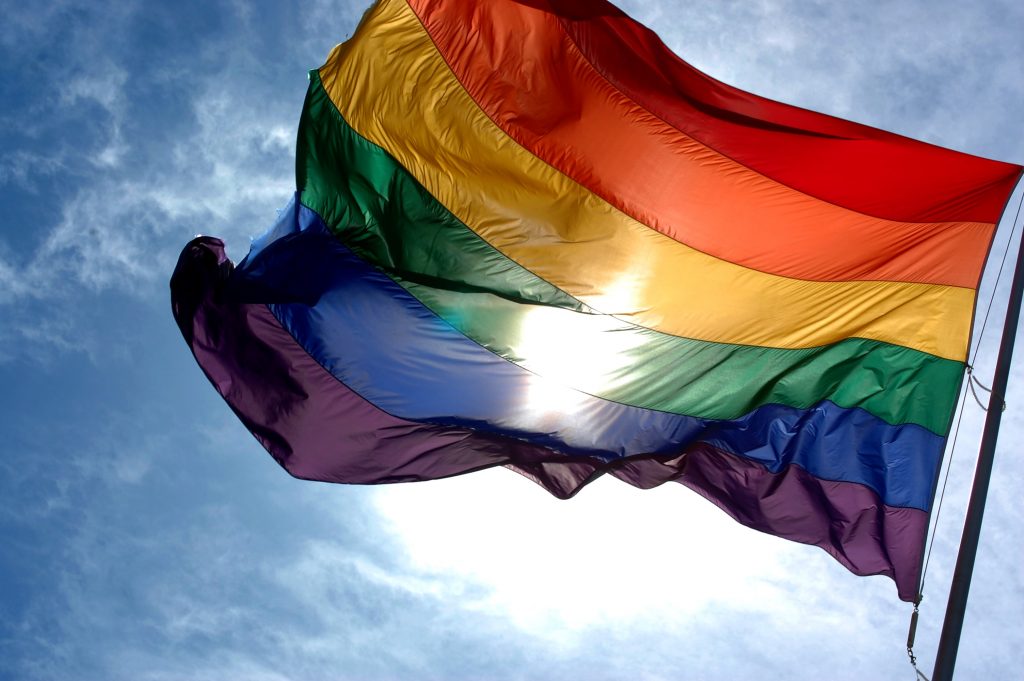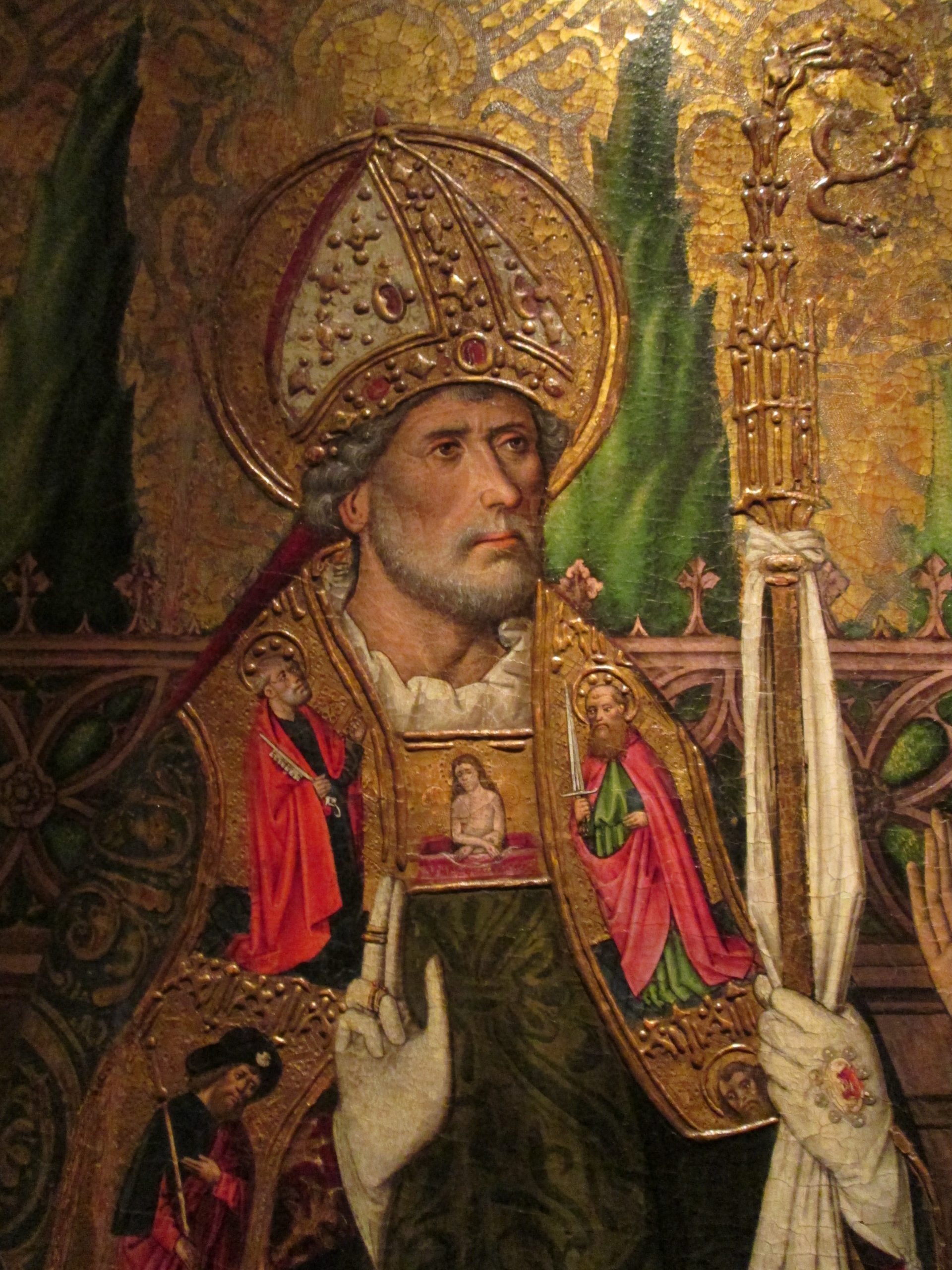
I took this picture in September 2015.
I was walking through Museum Square when I saw this rainbow. I changed my position to centre the rainbow over the church and took a quick photo on my phone. At the time it reminded me of the verse in Genesis 9 verse 13 “I do set my bow in the cloud, and it shall be for a token of a covenant between me and the earth.”
The rainbow has been a symbol of many things in the past and has taken on a new role during our present crisis. We can only wonder how it must have appeared to early humans when, for no apparent reason, a beautiful band of colour appeared in the sky and then just as quickly vanished. The idea that it conveyed some sort of message would have been strong and for the early Israelites its connection with the story of the Flood made it a symbol of God’s continuing care for his people which was expressed in the Covenant.
Whilst some gaze in wonder, others seek to analyse. Isaac Newton, in lockdown at Woolsthorpe Manor whilst Cambridge University was closed because of the Plague, converted a room to study light. In his 1666 experiment he showed that white light could be split into rainbow colours by a prism. From this the suggestion that raindrops acting as prisms split sunlight into the colours of the Rainbow rapidly gained acceptance in the West, an idea that had been suggested 200 years earlier by Islamic scientists.
Four hundred years later the controversy surrounding the Lady Chatterley obscenity trial brought the writing of D.H. Lawrence to prominence and I along with many other students at the time read Lawrence’s ‘The Rainbow’ and saw in it an escape from what we saw as the constraints and constrictions of Victorian morality. Interestingly a similar level of controversy was caused within the Church by the publication of ‘Honest to God’ by John Robinson Bishop of Woolwich which challenged Christians to re-examine traditional concepts and beliefs.

In 1995 South Africa won the Rugby World Cup just a couple of years after the end of Apartheid. Nelson Mandela, the County’s first black President, in his speech to the victorious team, spoke of his country as a “Rainbow Nation”, a term first coined by Archbishop Desmond Tutu after the post- apartheid elections in 1995. The idea that a wide range of races, tribes and clans could be united in the same way that the different colours unite to make up the Rainbow made this an appealing metaphor. The new Republic’s flag used colour to represent this diversity.

The idea that the Rainbow could represent diversity in areas other than race and ethnicity has since been adopted in other areas, particularly in the realm of gender and sexuality. This use is well illustrated by this image which accompanied an online article entitled ‘The sexuality rainbow: a colourful and educational glossary.
In reality however, the flag is incorrect both as a representation of a rainbow and also as a visual metaphor in that the bands of colour have hard edges, whereas in a true Rainbow the colours vary continuously and one cannot tell where one ends and another begins.
In the last few weeks images of the Rainbow has taken on a new meaning as way of showing support for our NHS and other Care Workers as they battle with the Corona Virus. We are now very familiar with brightly coloured children’s drawings and paintings in windows and on notice boards created to show how much we appreciate those in the front line of the battle against the pandemic. I have no idea how this image came to be chosen for his purpose but I wonder if some kind of folk memory connects it with the sense of God’s over-arching protection from Genesis.
In the last three weeks I have been part of a small online group working to devise a new formula to calculate the Parish Share, which distributes the cost of the Clergy between the Churches of our Deanery. People tell me this is one of the best ways to lose friends but fools rush in …
In this exercise we have amassed a great deal of data about approaches to this, both within the Diocese and in other Dioceses. This has shown a variety of approaches and has also brought home to me the tremendous variation in size, churchmanship and history of our Churches even within our one Deanery. Finding a solution which recognises these differences and yet is accepted by all as reasonable will be a challenge but I think the image of us as a Rainbow Deanery varied, but part of a single whole, might help us particularly if we imagine the Rainbow over St. Peter’s stretching to arch over the Churches and people of our Deanery. A similar concept could help us as we try to understand and value the wide range of structures and patterns of worship within the Church of England.
Keith W Aplin LLM. St Peter and Paul Wisbech, 28th of April 2020, Day 39 of the Lockdown
